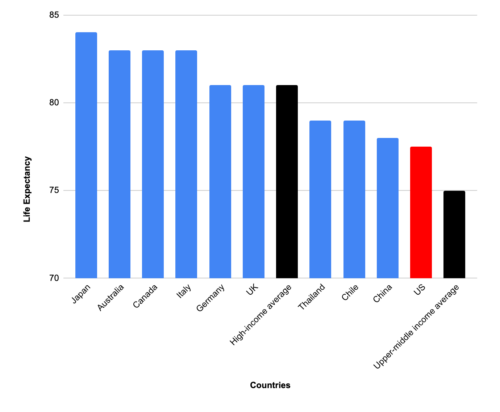Good Politics and Good Policy: Why Progressives Should Support A “Flexible” Domestic Manufacturing Initiative
By: / 03.09.2020
It’s the S-word–shortages. The greatest manufacturing nation in the world, but we can’t make enough masks and other protective gear for our frontline healthcare workers? The coronavirus crisis points out what many of us already knew–globalization is not enough to provide the flexibility and surge response that the U.S. needs. Apparently in medical emergencies, countries do what you would expect–cut off exports and keep supplies of critical medical equipment for their own people. And it’s not just China–France and Germany are also restricting exports of medical supplies.
Medical supplies are just the tip of the iceberg here. As has become clear, the U.S. needs a more flexible and diverse manufacturing sector, able to pivot when needed and quickly handle surges in demand and shortfalls in supply. Strategic inventories are all well and good, but you can never predict exactly what is going to happen, whether it’s an environmental disaster or the unfortunate specter of war.
As I wrote in a new column in Forbes, the coronavirus epidemic “has illustrated the fragility of global supply chains, and the potential problems with having too much global production concentrated in China. In February, for example, Coca-Cola, for example, warned of possible disruptions in the supply of sweeteners coming from China. Other industries, from steel to pharmaceuticals, face similar potential problems.”
But we don’t need investment in conventional factories, which in ordinary times can’t compete. What’s needed is a sustained push for digital manufacturing, which is potentially far more flexible than conventional manufacturing. It’s like the difference between a point-to-point telephone system and an Internet built on general purpose routers and processing node. The conventional telephone system, built on copper wires, worked very well for making voice calls, but was hard to reposition for other uses. The Internet can not only handle voice calls, but excels at all sorts of new tasks.
Luckily, here’s one case where good policy is good politics. PPI recently released a new poll conducted by Pete Brodnitz. The poll surveyed 1500 registered voters in Michigan, Pennsylvania and Wisconsin in early-to-mid February, three swing states that will be critical for the 2020 presidential election in November.
The poll showed that 73% of the respondents in these three states favored a federal role in promoting manufacturing-related jobs in the United States, an overwhelming majority. Moreover, the support was stronger among Republicans and independents than among Democrats. Such a program could be crucial in a tight race.
We’re not talking about a conventional industrial policy that picks winners and losers. Rather, progressives should support the development of a flexible digital manufacturing sector that can quickly adapt to changing circumstances, whether it’s a medical emergency, an unexpected growth in demand for electric vehicles, or political hostilities. The program would provide short-run demand stimulus to keep people working, medium-term incentives for digital investment (which we wrote about here), and a long-term research program for flexible digital manufacturing processes. Good policy–and good politics.






